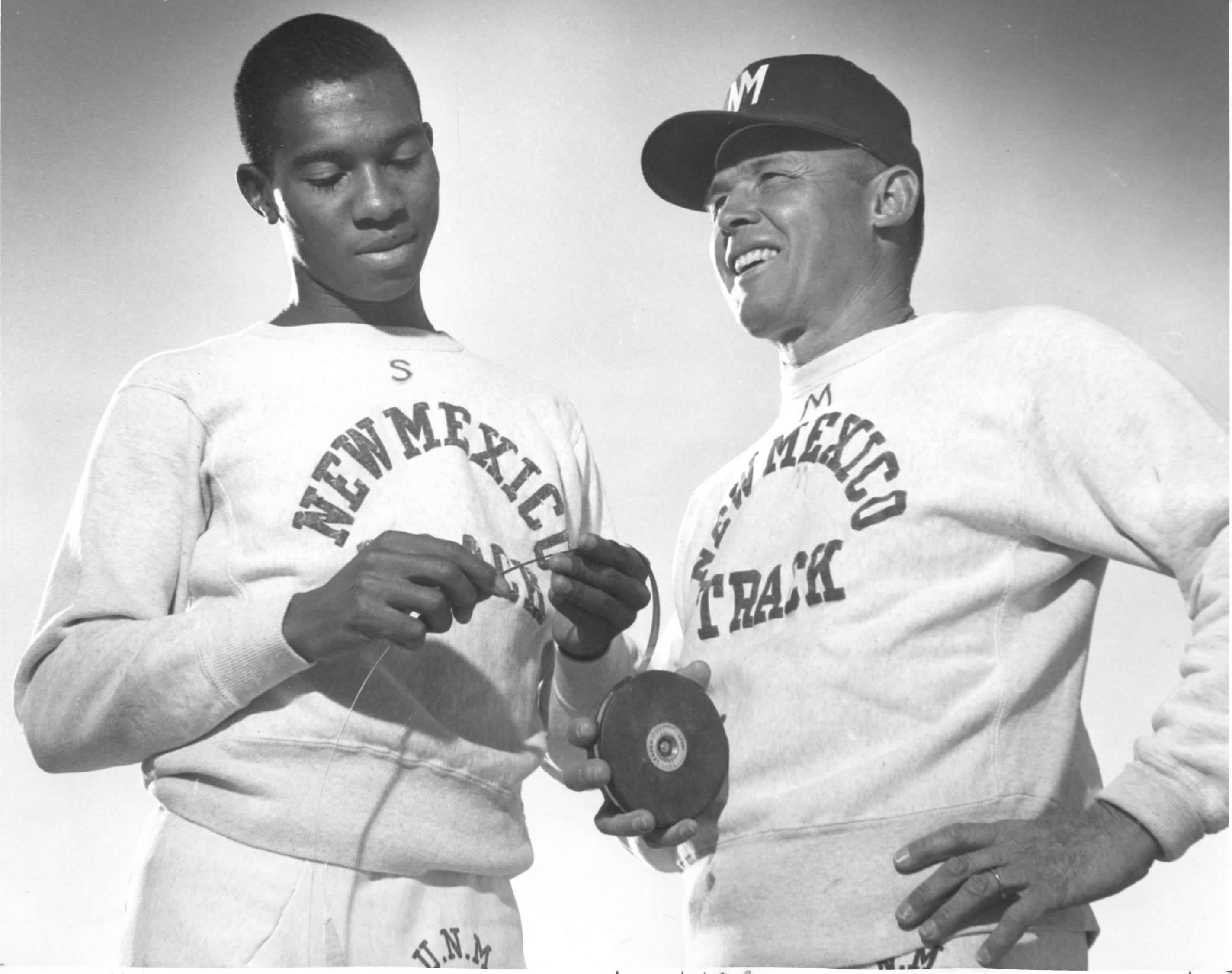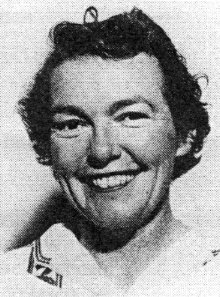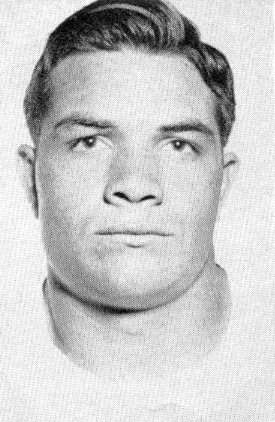- Hugh Hackett
- Hugh Hackett
Hackett served as the Lobos’ head track coach from 1959-77, and was a major player during New Mexico’s “Golden Years” in the early 1960s. During Hackett’s tenure, UNM produced 37 All-Americans, an impressive 79-19-1 dual-meet record and won eight Western Athletic Conference championships.
Such was the school’s prestige in track and field in Hackett’s years that UNM hosted the NCAA Outdoor Track Championships in 1963 with Hackett serving as the meet director.
Among Hackett’s notable pupils were Clarence Robinson, who broke Jesse Owens’ broad jump record and became a world-class triple jumper; Buster Quist, who won the javelin at the NCAA and Pan American Games championships; Dick Howard, a NCAA champion and 1960 Olympic bronze medalist in the 400-meter hurdles; Adolph Plummer, who smashed the world record in the 440-yard dash in 1963; and John Baker, the tremendous miler whose life was tragically cut short by cancer in 1970.
Hackett came to New Mexico as an Air Force glider pilot trainee at Kirtland Air Force Base. He like the area so much that he returned after World War II, and later graduated from UNM.
As of the summer of 2010, the 90-year-old Hackett continued to participate in the Senior Olympics, which he has done for decades.

- Frances McGill
- Frances McGill
During her 30-year career as a professor of health, physical education and recreation at UNM, Dr. Frances McGill became a major contributor and pioneer of national importance to her profession, as well as a mentor, advisor and friend to thousands of UNM students, both men and women.
Dr. McGill joined UNM’s physical education department in 1945 as a full professor. She became the de facto director of women’s athletics, inaugurating multi-sport competition for Lobo women with other university teams from Arizona, Colorado, Texas, Wyoming and Utah, as well as other New Mexico schools. McGill’s efforts led to the eventual formation of the High Country Athletic Conference, which was later absorbed by the Western Athletic Conference.
In addition to her impressive contributions to UNM and the state of New Mexico, Dr. McGill’s accomplishments in the field of women’s athletics on a national level covered a spectrum that includes sports medicine research and physiological study, writing, lecturing, coaching, teaching and pioneering in the development of women’s intercollegiate competition.
Dr. McGill authored and published more than 40 studies and research articles connected with women’s sports and served as the national chairperson for several boards. In 1966, in advance of the 1968 Olympic Games in Mexico City, Dr. McGill organized and chaired the world’s first international symposium on altitude physiology, a “break through” conference that was held at UNM.
Dr. McGill retired from UNM in 1975.

- Larry White
- Larry White
Larry White always defied the stereotype. Recruited by UNM as a football player out of Hobbs High School in 1951, White not only fulfilled that expectation in a grand way, but also became one of the school’s outstanding students and citizens.
White established such dominance as a two-way Lobo football player (center and linebacker) that he became the school’s first All-American in 1953 and again in ’54. He was a member of Student Council and the Psi Omega Biological Honorary Society, and also played the oboe for the Albuquerque Symphonic Orchestra and the UNM Symphonic band.
White earned his biology degree from UNM in 1955 and two degrees from the Baylor Dental College: a D.D.S. in 1959 and an M.S.D. in orthodontics in 1968. His orthodontic practice eventually expanded throughout southeast New Mexico and even parts of West Texas.
White wrote and published more than 20 articles on his profession, and in 1988 received the International College of Dentists’ “Golden Scroll” award as editor of the most improved dental journal in the United States.
His head football coach at UNM, Dudley DeGroot said: “Larry White may not be the biggest or fastest player I ever coached, but he is the best one. He does it with head and heart and that seems to be enough.”


